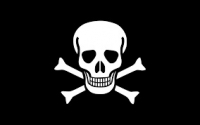Parking Pirates Face a Broadside
Wednesday 28 November, 2018 Written by The RAC & Simon Collyer
The RAC has welcomed the support of the House of Commons for a fairer private parking system, which would make it easier to appeal unfair fines.
Parking Pirates as they are called, are the bane of motorists across the country, especially those on low incomes who feel threatened by the thought of bailiffs knocking on the door demanding money and the threat of Court, though in fact most companies tend not to take individuals to court.
The Parking (Code of Practice) Bill would see the creation of a single, independent appeals service for drivers who have been hit by hefty private parking charges.
The Bill would also introduce a new code of practice for private car parks, including a £100 limit for fines and a 10-minute grace period for drivers overstaying the limits.
The Bill, introduced by Conservative MP Sir Greg Knight, represents a commitment to the party’s 2017 manifesto promise to tackle rogue private parking companies.
It comes as an increasing number of motorists are being targeted by these firms, rocketing from 687,000 a decade ago to an expected 6.4 million in 2018/2019.
According to a recent study the DVLA is set to make £16 million this year alone from private parking firms requesting driver details, with each request costing £2.50. Many people are annoyed that the DVLA is selling on their data without motorists permission and earning huge profits in the process. .
The Bill, which now heads to the House of Lords, would introduce the same system across England, Scotland and Wales if passed in the upper house.
ABC Comment: The ABC has also welcomed the bill. At a social enterprise conference recently, the ABC pointed to companies who claimed to be ethical but who are happy to enter into business arrangements with private parking company’s such as the East of England Co-op.
The ABC has recommend not paying PCN’s and site these laws:
The Bill of Rights Act 1689 states: "That all grants and promises of fines and forfeitures of particular persons before conviction are illegal and void".
"Before conviction" means that no fine or forfeit can be imposed until and unless the individual is convicted in a court of law.
The Bill of Rights Act cannot be repealed. It is a constitutional Act that protects our constitutional rights.
Article 6 of the European Convention on Human Rights protects the right to a fair trial. In civil cases it protects the right to a public hearing before an independent and impartial tribunal within reasonable time.
Do not open the door to bailiffs and do not cave in to intimidation.
ABC Comment: have your say below:

Leave a comment
Make sure you enter all the required information, indicated by an asterisk (*). HTML code is not allowed.
Join
FREE
Here










